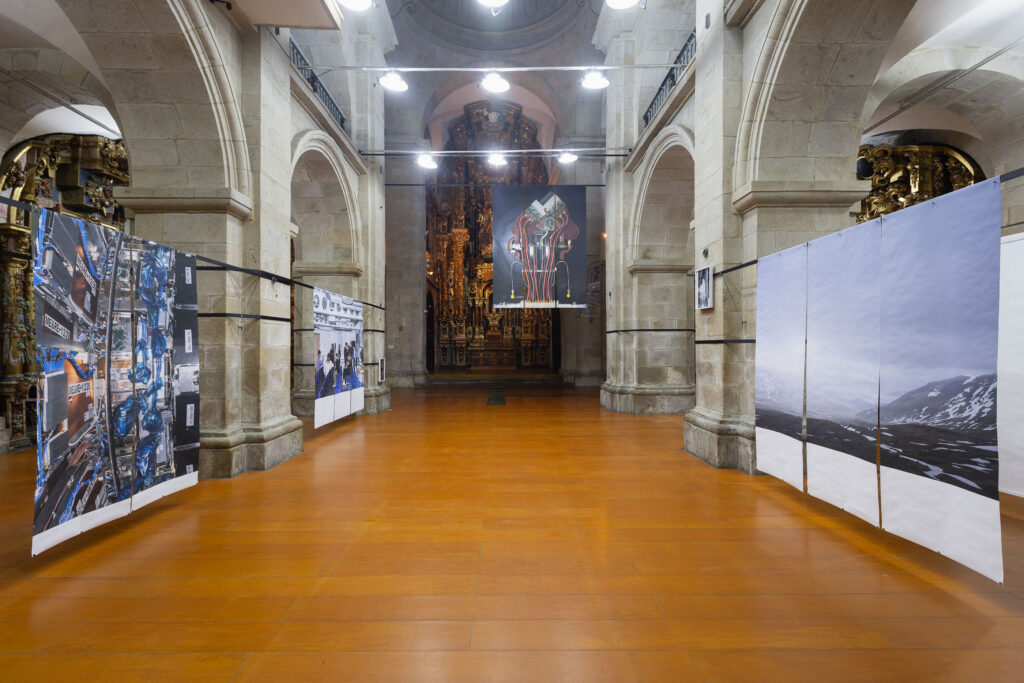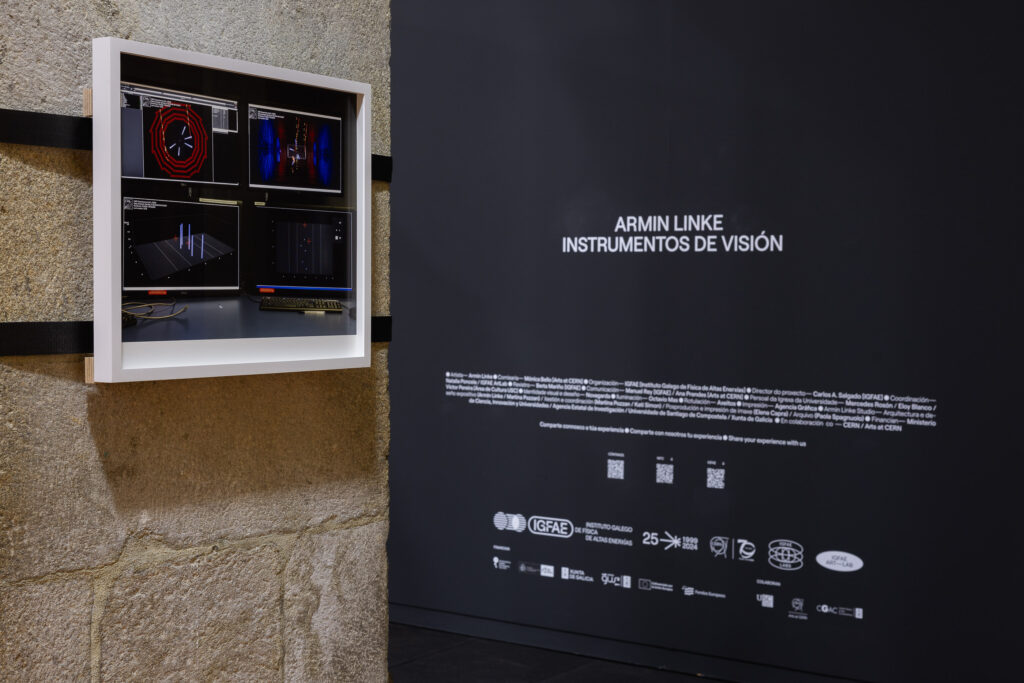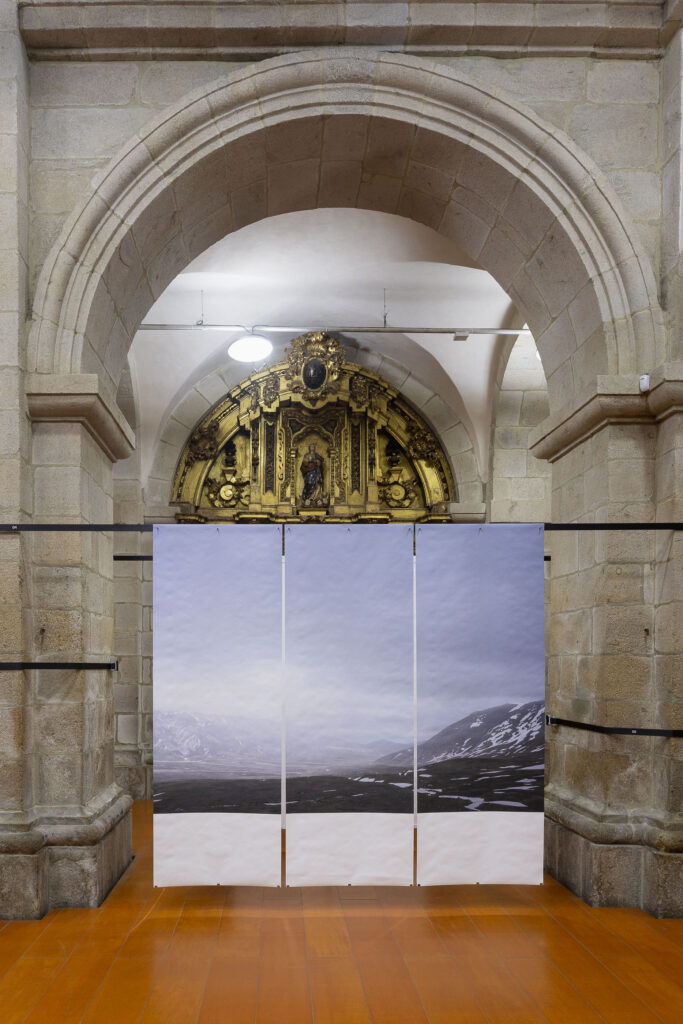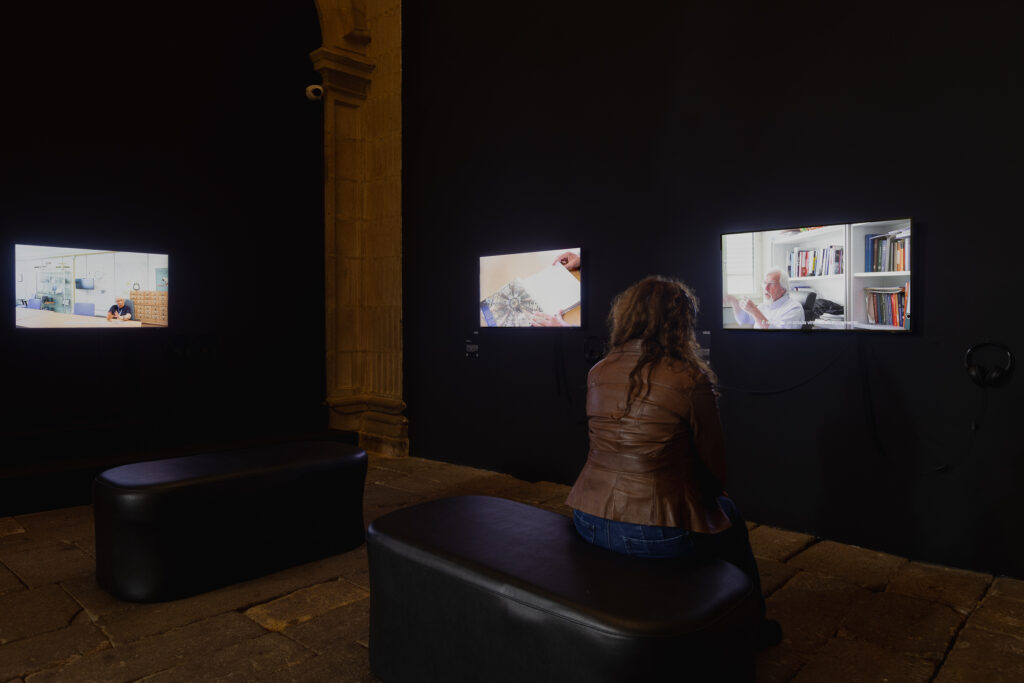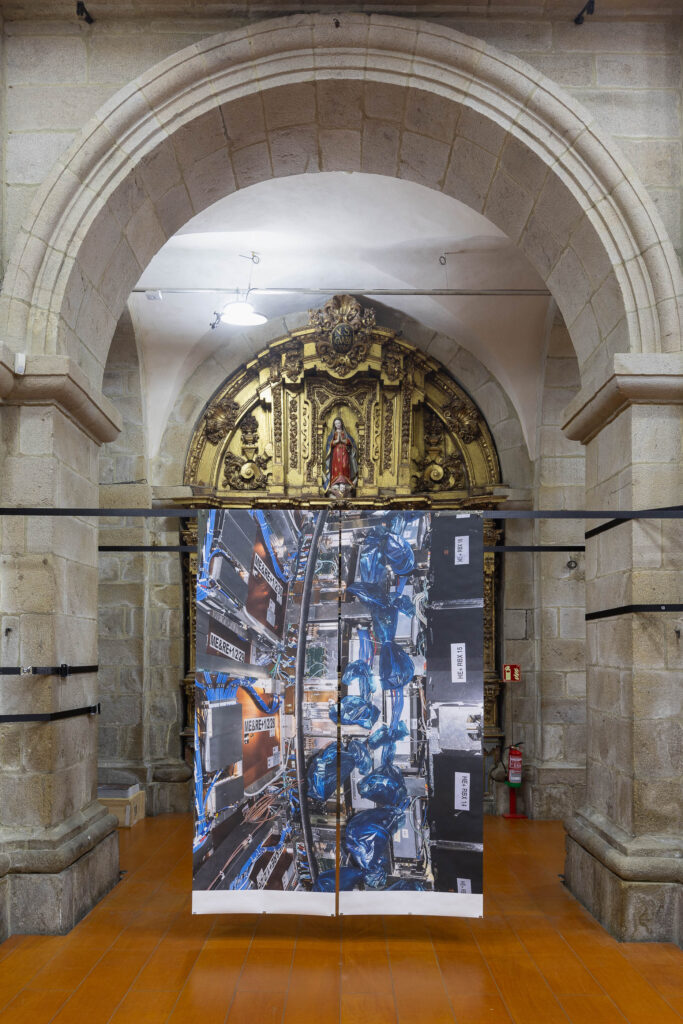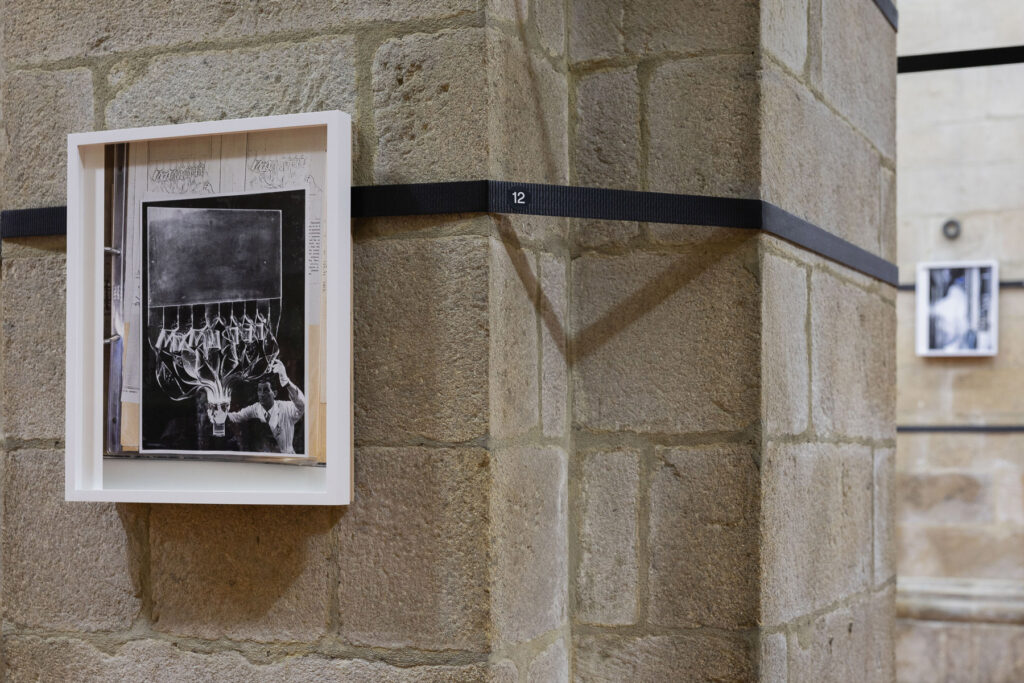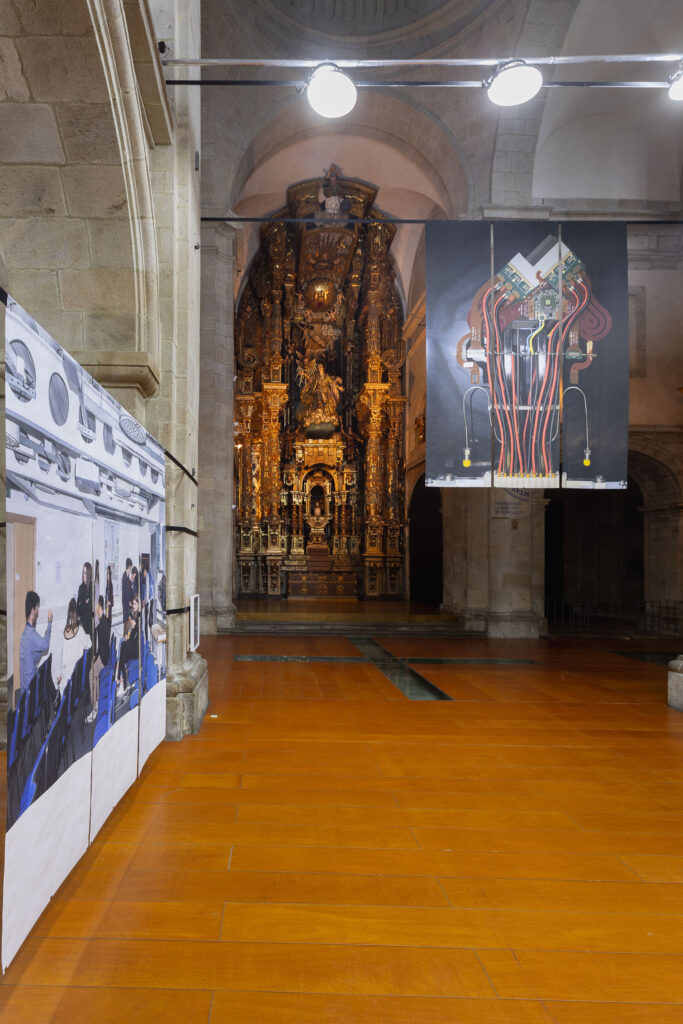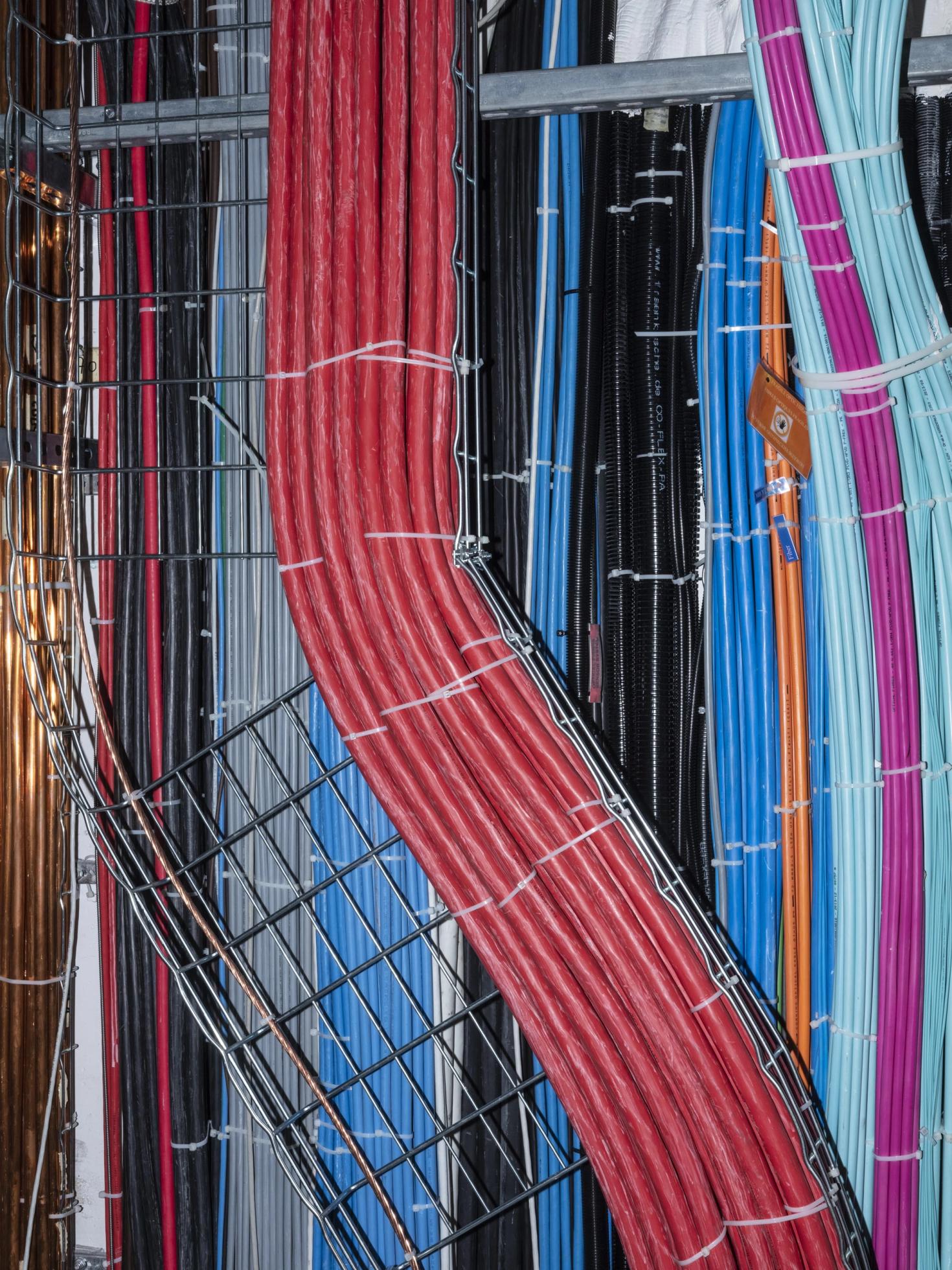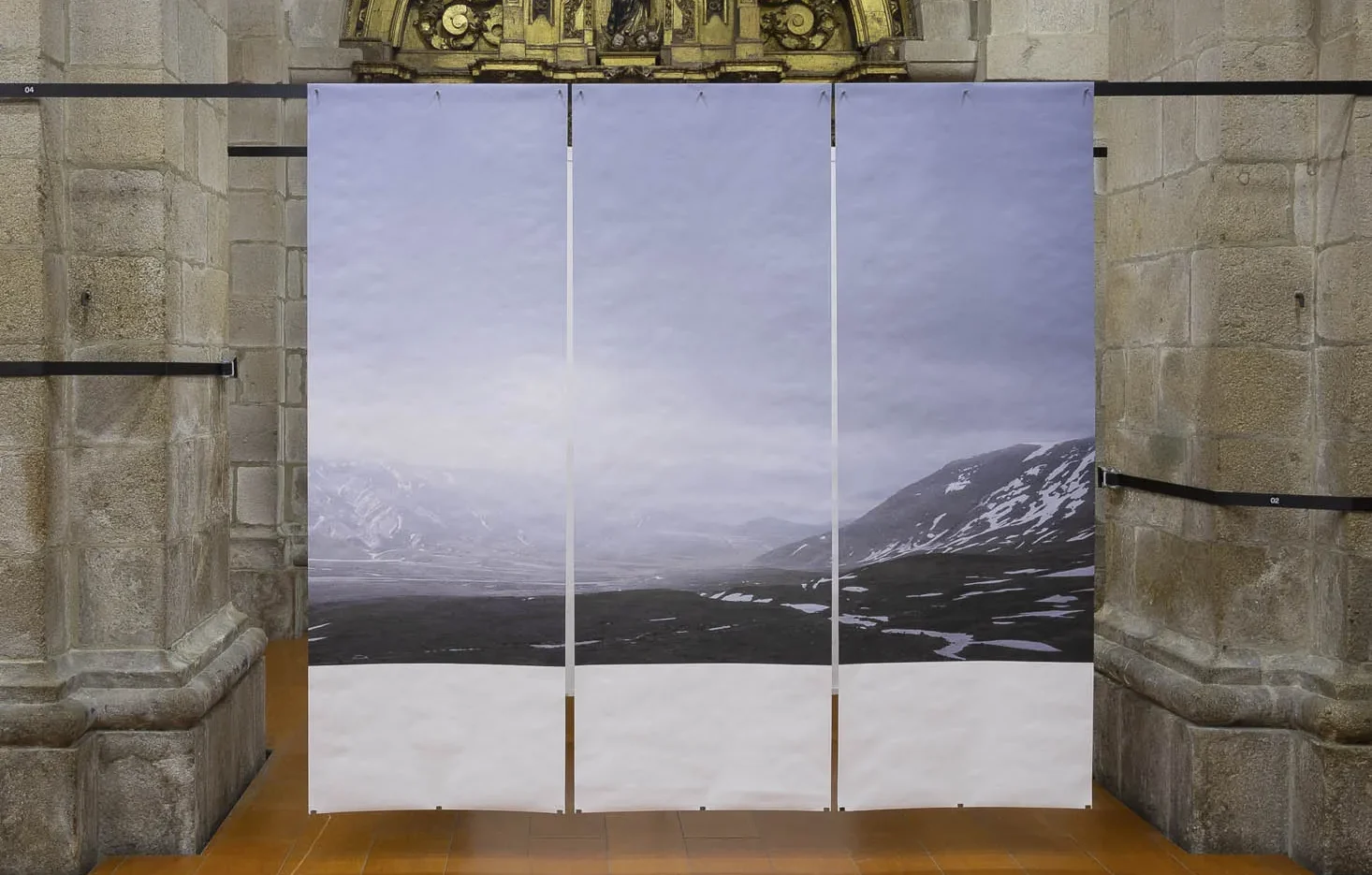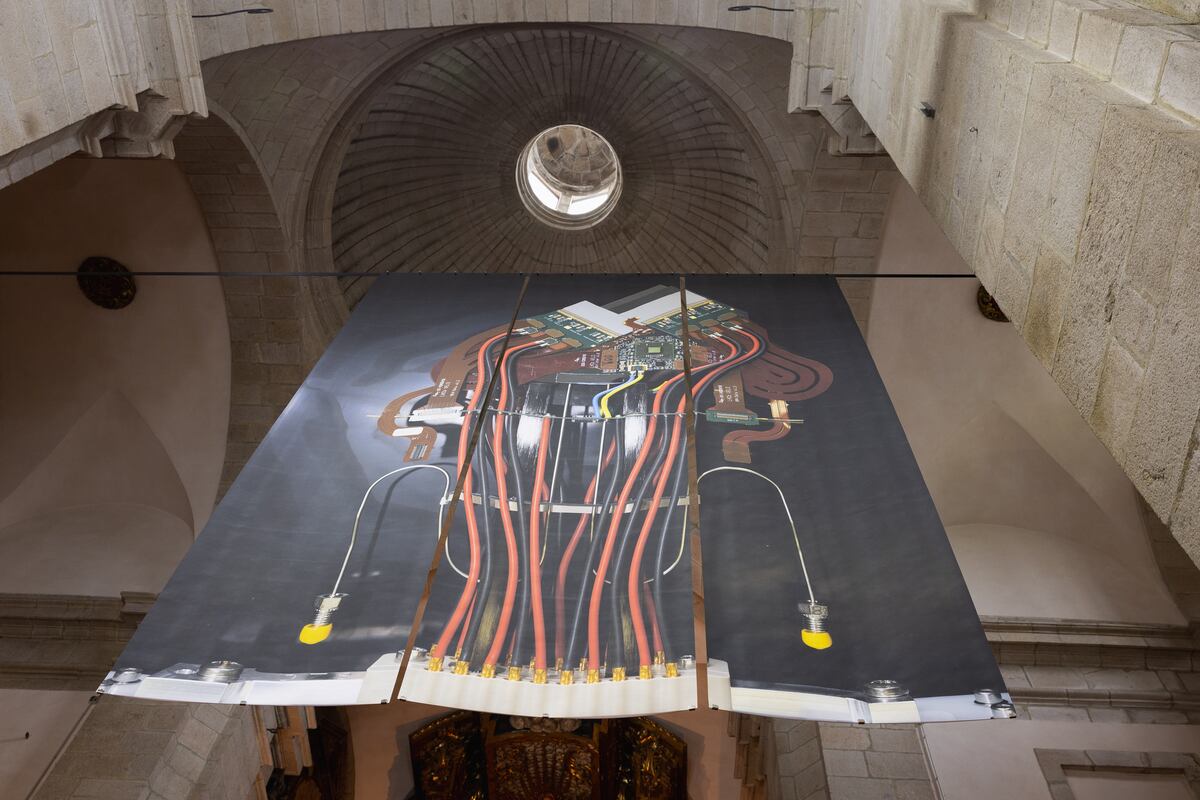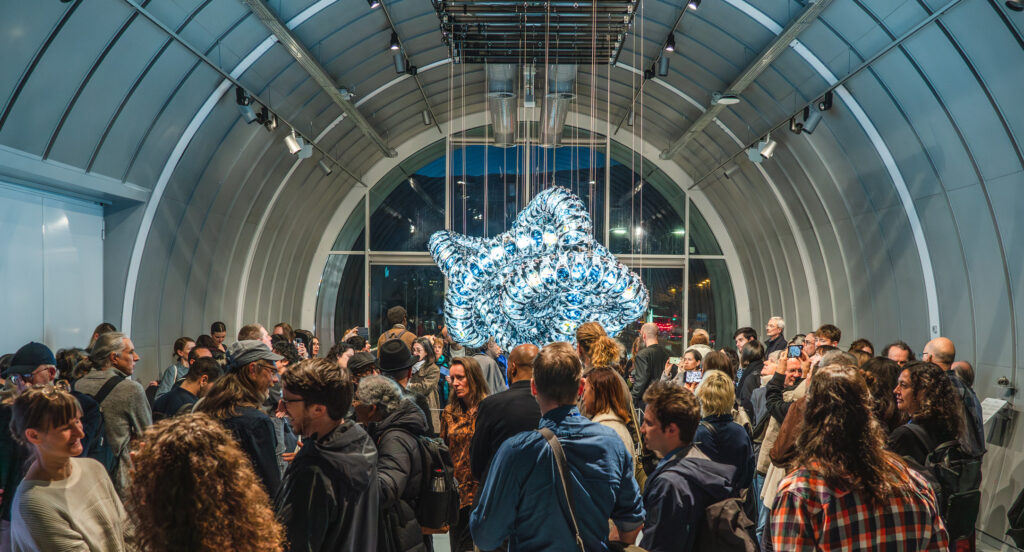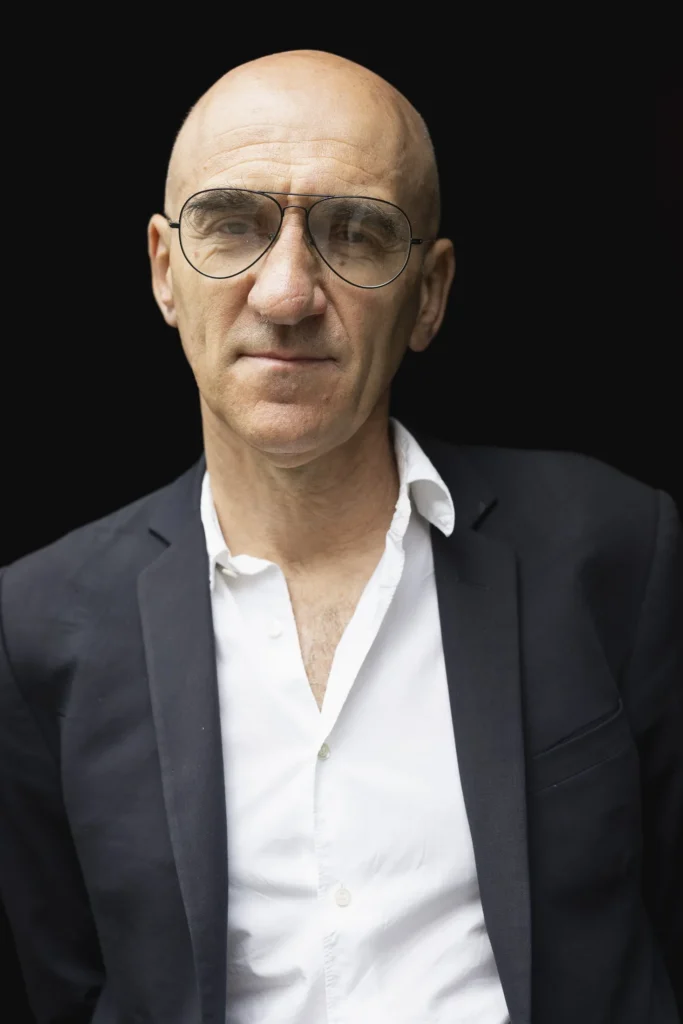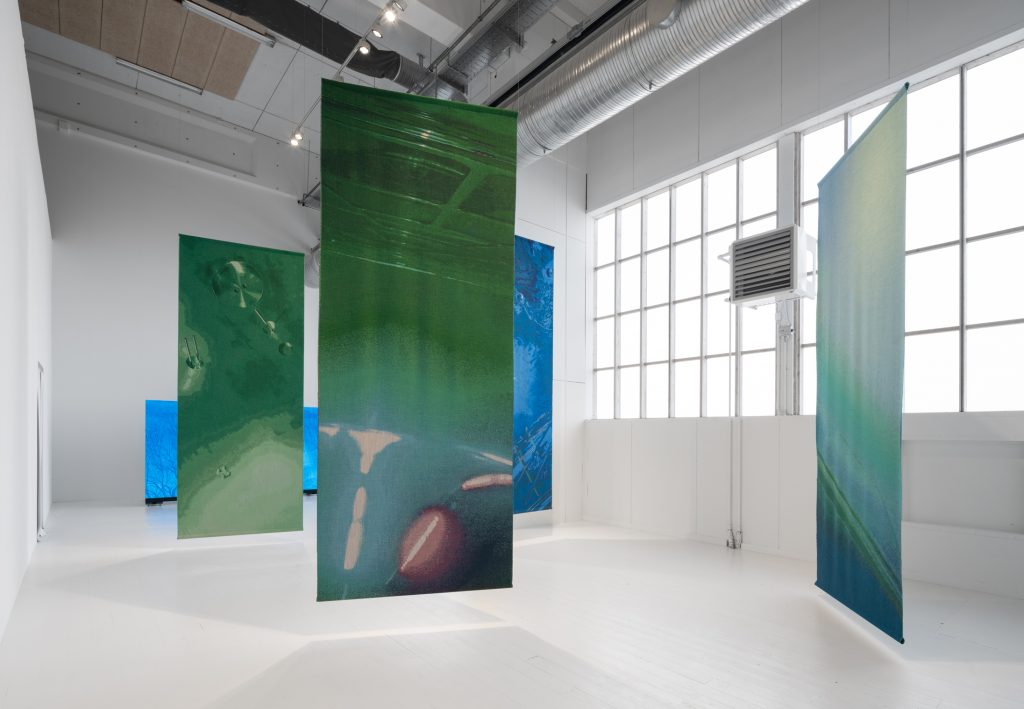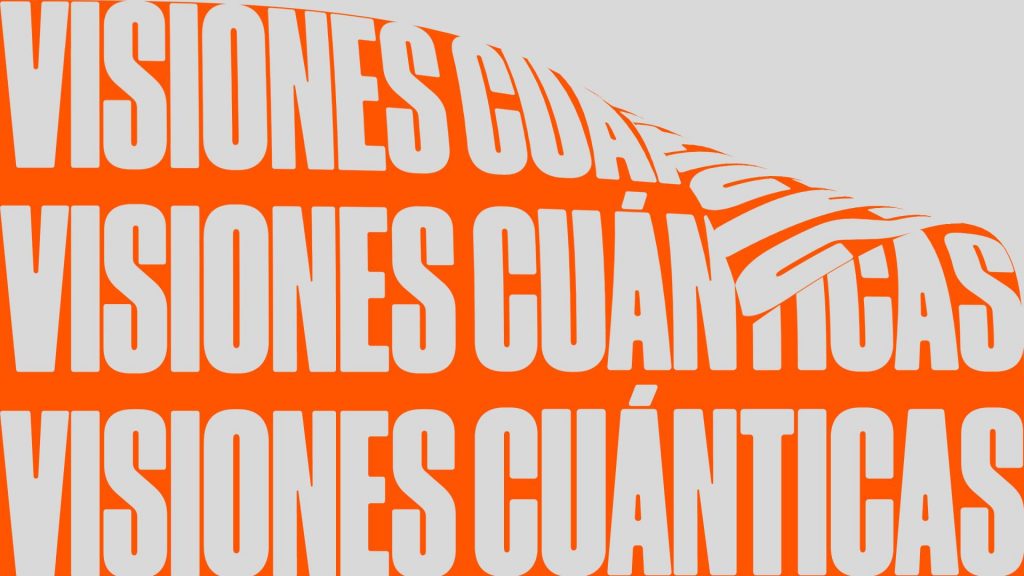- Venue
- Igrexa da Compañía de Santiago de Compostela, Spain
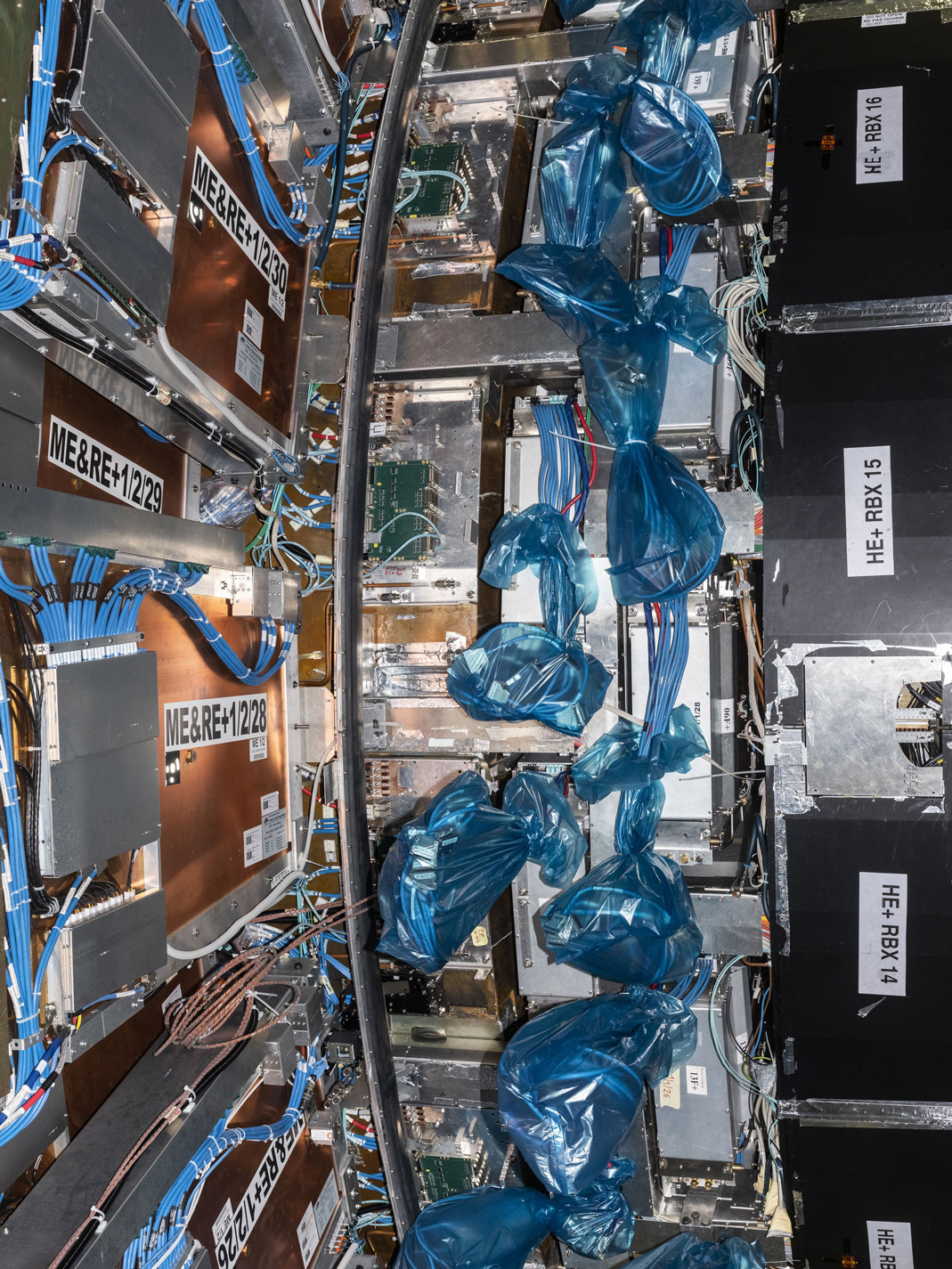
A project by the Galician Institute of High Energy Physics (IGFAE) and Arts at CERN
Over the last century, science has profoundly shaped our world. Technical advancements and concepts such as relativity and quantum mechanics have revolutionised our perception of space, time, and matter. This process has been driven by a strong emphasis on experimentation and the development of complex instruments of vision. Furthermore, the interconnectedness of theoretical sciences and the experimental culture of laboratories has fostered an intricate relationship between instruments, objectivity, and scientific definitions.
Instruments of Vision departs from the conventional, reflecting on the dynamic interplay between scientific cultures within the laboratory environment. Armin Linke has been invited to transform the baroque Igrexa da Universidade in Santiago de Compostela, prompting reflection on the complex intertwining of laboratory life and the dynamics moulded by science making. Visitors are invited to embark on an artistic exploration spanning over twenty years, during which Linke has captured some singular features of these environments, from unfinished components of detectors and accelerators, dimly lit blackboards, data and control centre screens to the uncanny underground environments of particle physics experiments.

The works in the exhibition are composed and entangled in the baroque space of the church, reflecting on the contemporary fascination for the scenarios of science and their condition within contemporary culture. We can see scenes from Linke’s time and visual research at CERN (European Organization for Nuclear Research, Geneva, Switzerland), IGFAE (Galician Institute of High Energy Physics, Santiago de Compostela, Spain), Laboratori Nazionali del Gran Sasso (L’Aquila, Italy) and IQOQI (Institute for Quantum Optics and Quantum Information, Vienna, Austria).
Ultimately, Instruments of Vision argues that science is not a solitary endeavour. Instead, it is shown as a collective effort involving human actors and socially intricate environments—a choreography of researchers, instruments, artefacts, materials, and spaces, revealing the idiosyncratic aspects of scientific practice. Through his portrayal, we are reminded that science is a process of composition where multiple elements come together to shape and shake our understanding of our surrounding world.
Instruments of Vision commemorates the 25th anniversary of IGFAE and the 70th anniversary of CERN. On this occasion, IGFAE and Arts at CERN join forces to promote new models of dialogue between artists and scientists at the laboratories.
